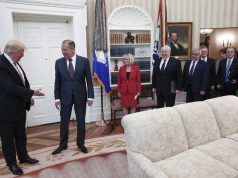Marquel, TPVs NYTimes Economic Dreamers Section correspondent, was checking the time, when he read Fixing Climate Change May Add No Costs, Report Says. A global commission is challenging the widespread belief that efforts to reduce global warming would carry a steep price. Every measure to reduce carbon emissions turns out to have a correlative economic benefit, yielding a zero sum strategy. Marquel read that, for instance, a 40% decrease in coal pollution could be accomplished by switching to solar panels. That involves no greater cost over ten years when the savings equal the original cost of the panels. If people walk instead of ride cars, 10% more would be saved. If they are going long distances, they could run. The only expense is perhaps a doubling or tripling of their footwear expenses which are far less per person than the carbon produced per person by gasoline. That last example sounded forced to Marquel so he went down to talk to the people at the Natural Resources Defense Council.
“We have a long list of items we’ve developed to make the switch from carbon basically free,” he said, “for instance, there is no need for hot showers to be above room temperatures. That would save significantly.”
“”We’ve considered that. Just take the hot shower you like but space them out.”
“Doctors tell us we take far too many. Once a month is fine for hygiene. ” he said.
“Easily solved. Do what the French do. Cologne. Or attack the offending areas. No need to take a full body bath if a sponge bath of a couple of key areas will do the trick.” He said.
“Cool down your meals. Why have hot fried chicken? Have it cold. Have cold steak sandwiches. Cold food generally will put a big dent in our carbon debt.” He said.
“Same as your hot showers. Space them out. One hot pastrami a month won’t hurt the ozone layer. But otherwise cold food. The same for apartments. Turn the heat off, Not down. At night, double your bed coverings. Flannel pajamas. In the daytime, wear a coat in the house. If every one did that, the seas would be receding, not rising. Wouldn’t that be nice?” He asked.
“Yes the train is a good starting place. But trains use oil, a major carbon dioxide producer. What if everybody got out of the train and pushed it? The heaviest car is the engine. You don’t need it any more. So you’re pushing the lightest cars on the train. And it keeps you healthy.”
“It may sound daunting but when a whole community is involved people tend to enjoy working together.” He said.
“Think of Edison. He invented the light bulb. But he didn’t invent dozens of them. We think each house could easily function on one light.” He said.
“You could go to the public library and write there.” He suggested.
“We’ve worked on that with projections. Using a number system, everybody gets work time.” He said.
“This is a social change. Everybody has to change their habits to low carbon activities.” He said
“Cave men were very low carbon yet very happy. That’s a model to strive for.” He said.
“We actually believe that because of the common sacrifices everyone would be making, a feeling of solidarity might make that club unnecessary,” he said, chuckling.














Funny.
marquel funny.
It made me hungry.